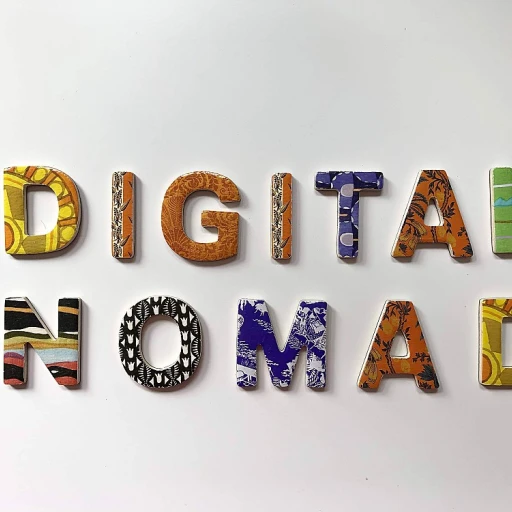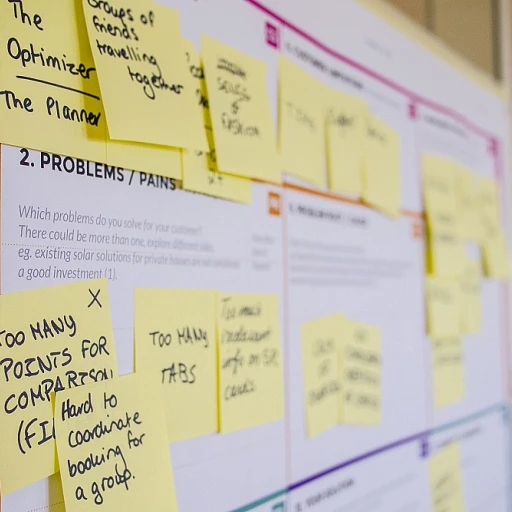Understanding Advertising Social Experiments
Decoding the Concept of Social Experiments in Advertising
Exploring the realm of advertising today reveals an exciting trend: the application of social experiments. These are not merely abstract ideas but practical strategies helping brands better understand their audience and tailor their marketing messages. Social experiments in advertising involve creating controlled, real-world interactions to observe consumer behavior and test various marketing strategies. The purpose of these experiments is to gather insights on how people engage with a brand's campaigns and content. This involves forming a hypothesis on audience responses, crafting media posts to test this hypothesis, and then analyzing the results to learn what works and what doesn’t. It's an innovative approach to digital marketing and media management, often yielding more authentic and valuable data than traditional methods. Brands are increasingly turning to marketing experiments to fine-tune their strategies and improve the effectiveness of their advertising. Marketing experimentation allows companies to shift from assumptions to facts, significantly impacting marketing campaigns. Social media platforms play a critical role in these experiments by offering a space wherein brands can interact with their audience in real-time, using dynamic marketing ideas to elicit responses and ensure effective feed-back. Through these experiments, brands can identify successful marketing strategies by testing various approaches and iterating based on the results. This helps them develop a more robust marketing strategy focused on evidence rather than speculation. For those interested in seeing how social experiments help brands navigate the fast-paced world of digital marketing, you might find this article on the rise of women influencers in AI and SEO insightful, as it showcases the broader impact of such experiments on marketing landscapes. As we delve further into advertising and its relationship with AI, it becomes evident that such experiments provide an essential foundation for integrating technology into advertising strategies.The Role of Artificial Intelligence in SEO
Harnessing AI for Enhanced SEO Impact
Artificial intelligence is quickly becoming a pivotal tool in optimizing search engine performance. Brands are leveraging AI to fine-tune their SEO strategies, helping them anticipate audience behaviors and curate more relevant content. The shift towards AI-driven insights allows companies to better understand the dynamic nature of search engine ranking algorithms and adapt accordingly, offering an advantage in the fast-paced world of digital marketing.
One major way AI impacts SEO is through its ability to analyze vast amounts of social data. By evaluating interactions on social media platforms, AI can identify patterns and predict trending topics, enabling marketers to refine their campaign strategies and enhance engagement with their audiences. This data-driven approach aids in crafting content that resonates with people, ensuring that social experiments in advertising yield measurable results.
Furthermore, AI's role in SEO testing and experimentation cannot be overstated. Marketers now employ AI tools to run hypothesis-based experiments, allowing for real-time analysis and adjustment of marketing strategies. This helps in minimizing trial-and-error timeframes and maximizes the effectiveness of marketing campaigns. Consequently, brands can launch successful marketing experiments by swiftly adapting to digital consumer behavior trends.
As AI technology continues to evolve, its integration with SEO practices promises more sophisticated media management capabilities. It offers insights into market demographics, allowing for targeted media posts that cater to specific segments. Such targeted approaches not only improve brand visibility but also establish more meaningful connections with customers, boosting overall brand impact.
The influence of AI in SEO mirrors a shift in marketing strategy development, where experimentation and testing are at the forefront of media marketing efforts. As a result, this combination of AI and SEO crafts a roadmap for brands to navigate the challenges of digital marketing, rendering them poised for success in an ever-evolving digital landscape.
Integrating AI with Advertising Strategies
Innovating Advertising Strategies Through AI
Integrating artificial intelligence into advertising strategies offers businesses the opportunity to revolutionize their approach to campaigns and content delivery. By embracing AI, companies can effectively manage their social media strategies and elevate their marketing experiments.- Enhancing Personalization: AI enables brands to tailor their messages to individual audience segments. With advanced data analysis, businesses can predict consumer preferences and behaviors, thus refining the impact of their marketing campaigns.
- Optimizing Content Creation: By applying AI tools, companies can develop content that resonates with their audience more effectively. This not only saves time in content generation but also increases engagement through data-driven insights.
- Strategic Media Management: Utilizing AI in media management helps streamline the process of posting and analyzing social media interactions. By monitoring trends and reactions, brands can adjust their strategies in real-time, testing the effectiveness of their ideas.
- Experimentation and Learning: AI supports continuous learning through marketing experiments, where social experiments and hypotheses are tested to assess their validity. The iterative nature of these tests aids in refining advertising strategies over time.
Case Studies: Successful Advertising Social Experiments
Real-World Applications of Social Experiments in Advertising
Social experiments within advertising often pave new avenues for marketing campaigns, shedding light on innovative strategies and engaging more effectively with the target audience. These experiments serve as a bedrock for media marketing, evaluating various marketing ideas and developing strategies intended to maximize brand impact. Leveraging real-world applications of social experiments in advertising, several brands have successfully tested hypotheses related to customer behavior, media consumption patterns, and social media engagement. For instance, by experimenting with different media posts and user-generated content, brands discovered new ways to capture audience attention and maintain engagement over time. Key elements in these applications include thorough testing and management social frameworks. Marketing managers often devise elaborate testing phases to gain insights into potential advertising outcomes. The testing not only helps in understanding audience preferences but also identifies the triggers that prompt consumer actions. Learn Through IterationMarketing experimentation provides valuable lessons for digital marketing strategies, allowing companies to iterate and hone their methods based on learned insights. By analyzing data points from past campaigns, companies can implement ideas that will help in constructing successful marketing strategies that are adaptable to change. Through successful social experiments, brands have realized the importance of personalized content and strategic timings in media marketing. Brands have managed to engage more audience through tailored content strategies and specifically targeted marketing campaigns, resulting in increased ROI and brand loyalty. The collaboration of social media platforms with these experiments also plays a vital role. By understanding consumer interactions on these platforms, brands adapt their approaches, generating campaigns that resonate more deeply with their target audience and harnessing the power of media management for enhanced brand presence. These explorations into advertising social experiments underline the potential for continuous growth and adaptation. As marketing strategies evolve, so too does the importance of learning from successful applications of social experiments, steering brands towards future successes.
Challenges in AI-Driven SEO for Advertising
Overcoming Hurdles in AI-Enhanced SEO for Marketing Initiatives
Integrating Artificial Intelligence (AI) into Search Engine Optimization (SEO) presents a compelling opportunity for enhancing advertising strategies. However, this fusion does not come without its fair share of challenges. As businesses strive to create impactful social experiments to bolster marketing campaigns, understanding and addressing these challenges becomes essential.
One of the primary hurdles in AI-driven SEO for advertising lies in the management of vast amounts of data. AI systems rely heavily on data to formulate hypotheses, conduct tests, and derive insights. Marketing experiments entail analyzing diverse data points from social media interactions, media posts, and audience behavior. Ensuring data quality and relevance is pivotal to secure meaningful insights and avoid skewed results.
Moreover, AI algorithms require constant updates to stay aligned with evolving search engine algorithms and consumer preferences. This ongoing adaptation can demand significant resources, both in terms of technology and human expertise. The market's dynamic nature means that what worked yesterday might not yield the same results tomorrow, demanding a proactive approach from marketers and digital strategists.
Another layer of complexity is the need for human oversight to complement AI's technological prowess. While AI can rapidly process and analyze data, the human touch is indispensable for crafting creative advertising content, selecting suitable experiment ideas, and understanding the nuanced emotional triggers of the target audience. Balancing machine learning with human creativity ensures a well-rounded advertising strategy that resonates with people.
Furthermore, ethical considerations must be addressed when deploying AI in advertising. Privacy concerns and data protection laws necessitate careful handling of consumer data. Adhering to regulatory standards while conducting social experiments on various media platforms is crucial to maintaining trust and avoiding legal setbacks.
Despite these challenges, AI's potential in enhancing SEO strategies remains undeniable. By acknowledging and addressing these obstacles, advertisers can effectively integrate AI into their marketing efforts, leading to more insightful campaigns and successful marketing adaptations over time.












